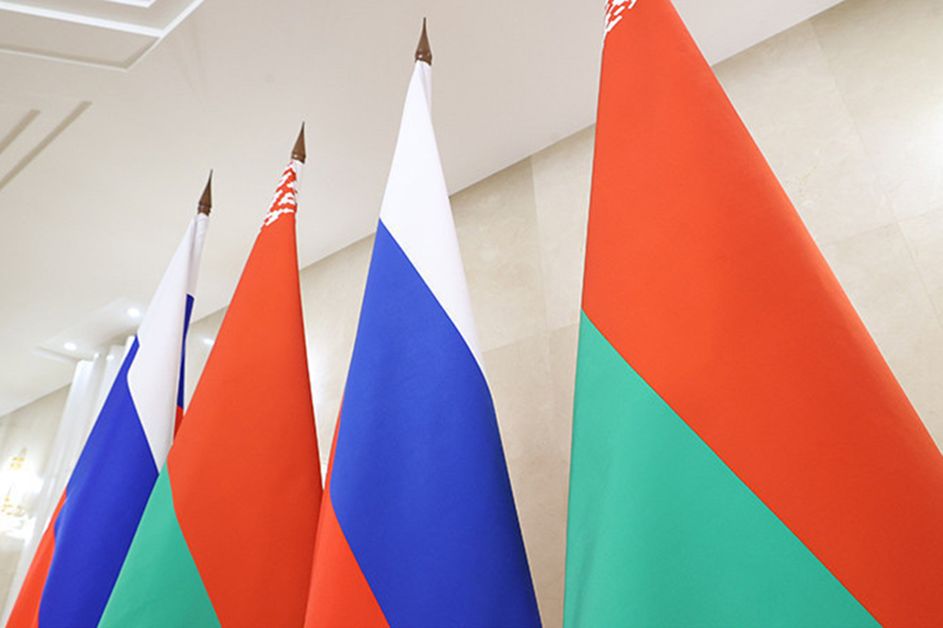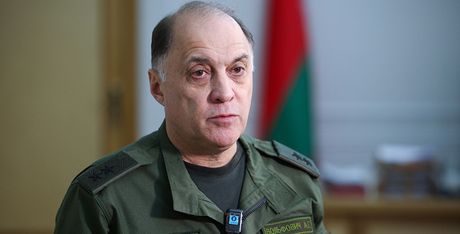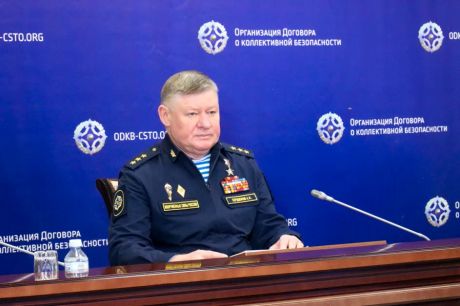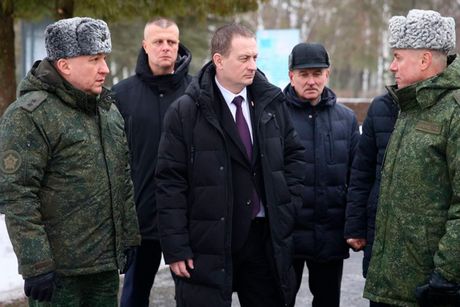Belarus, Russia present vision of Eurasian Charter of Diversity and Multipolarity
11:41, 2 December

Belarus and Russia have presented a joint vision of the Eurasian Charter of Diversity and Multipolarity in the 21st century. The document was provided by the press service of the Belarusian Ministry of Foreign Affairs, BelTA has learned.
- Share on Facebook
- Share on VK
- Share on Twitter
Belarus and Russia approved their joint vision of the charter of diversity and multipolarity on 22 November during the meeting of the board of foreign ministries in Brest. The document was signed by Belarusian Minister of Foreign Affairs Maksim Ryzhenkov and Russian Minister of Foreign Affairs Sergey Lavrov.
The document comprises about two dozen “key realities of modernity,” including the diversity of the foundations of life, transformation in international relations, and approaching multipolarity.
“Respect for the full range of diversity has traditionally served healthy competition and universal human progress, while neglect of this key phenomenon of social life has led to interstate wars, conflicts and various crises,” the charter's joint vision states.
The authors note that in today's world there are objective and irreversible deep transformations in international relations, caused by accelerated tectonic changes in various areas, which have a huge impact on all participants in international life.
“The world is moving inexorably towards a state of multipolarity, which is a consequence of its inherent diversity. This presents an opportunity to build a fair and inclusive democratic world order and peaceful coexistence in the interests of security and common prosperity of all states on the basis of mutually beneficial cooperation and genuine multilateralism in the long term,” the document emphasizes.
At the same time, according to Belarusian and Russian experts, the evolutionary movement of the entire world towards multipolarity and a polycentric model that meets the interests of the world majority is slowed down if the fact of the diversity of civilizations, cultures, traditions, peculiarities of historical development, value systems, forms of state structure and models of internal development is ignored, and the norms and principles of international law are violated.
In their joint vision of the charter of diversity and multipolarity, the authors also draw attention to the peculiarity of Eurasia. In their opinion, it is the geographical center and the material foundation of the emerging multipolar world; ancient civilizations are located here, around which states, integration associations, regional organizations and centers of power have formed.
“It is in Eurasia that the main contribution to the progressive growth of the world economy is provided, independent centers of development are strengthened,” the document says. “In the context of the important role of Eurasia, achieving the goals of peace, security, stability and prosperity in this space meets not only the interests of the states of the continent, but also the interests of all countries of the world.”
In this regard, the representatives of Belarus and Russia undertake to rely on international law, i.e. to be guided in their actions by the norms of international law based on the UN Charter in its entirety and interrelation and other international legally binding documents.
Among the mandatory approaches are recognition and respect for the diversity and equality of civilizations, cultures, traditions, peculiarities of historical development and systems of universal human values, diversity of forms of state political structure and models of internal social and economic development of the countries of the world. The parties oppose exceptionalism and double standards in international politics and intend to contribute to the speedy construction of a multipolar world and a just global order.
Special attention is paid to the formation of a new continent-wide architecture of security interaction based on the principles of indivisibility of security, justice, legitimacy, sustainability and joint contribution of the participants.
Belarus and Russia will continue to promote the restoration and strengthening of the central coordinating role of the United Nations in world affairs and the effective use of the mechanisms of the United Nations system to overcome common global challenges and threats, and to strengthen the voice of the world's majority countries in the organization.
The authors also intend to work for the consolidation of the Eurasian space to ensure peace, stability and common prosperity on the continent in the interests of all its states, as well as to counter attempts by external forces to interfere in the affairs of Eurasian states and pursue policies aimed at undermining the processes of consolidation and cooperation on the continent, to impose their development models, ideological attitudes and alien spiritual and moral values.
“We, representatives of the Republic of Belarus and the Russian Federation, invite all Eurasian states to join the dialogue on a set of issues affecting the principles of interaction in a multipolar era and relating to the continental architecture of security, cooperation and development, in order to develop, taking into account what is set out in this document, the “Eurasian Charter of Diversity and Multipolarity in the 21st century”, the document summarizes.






